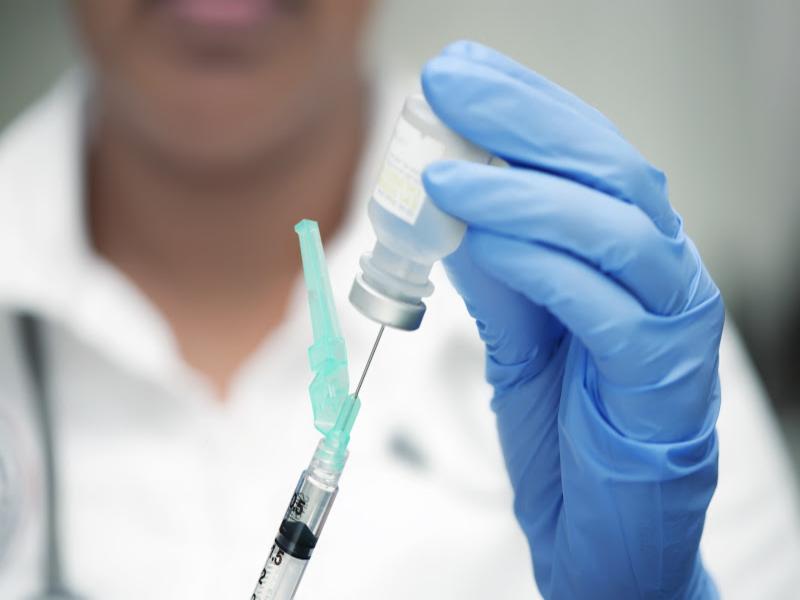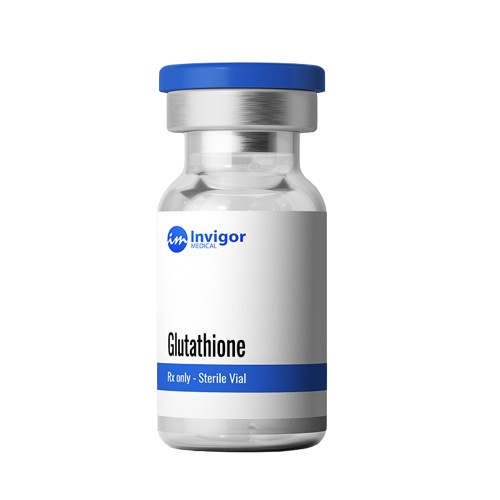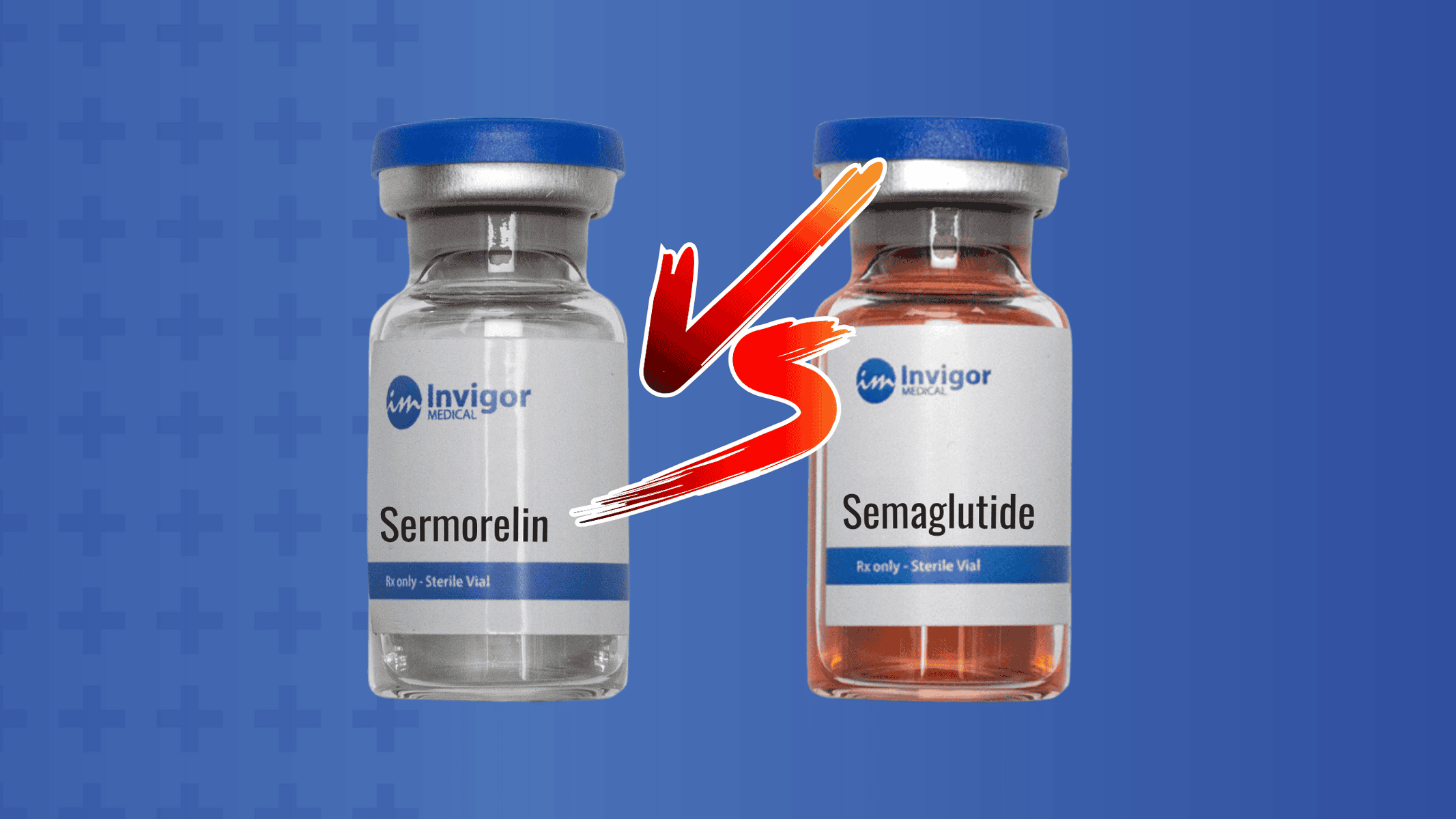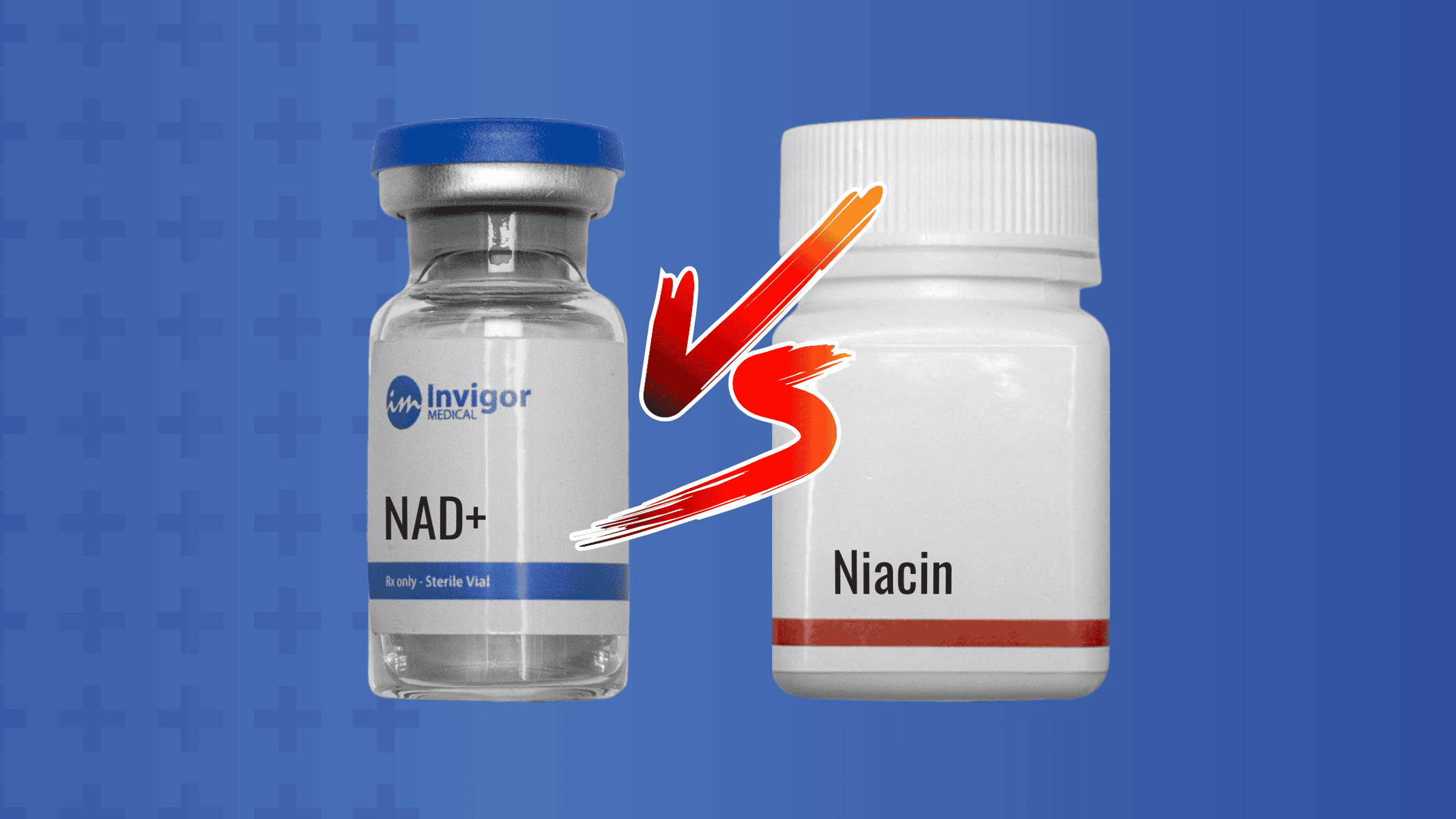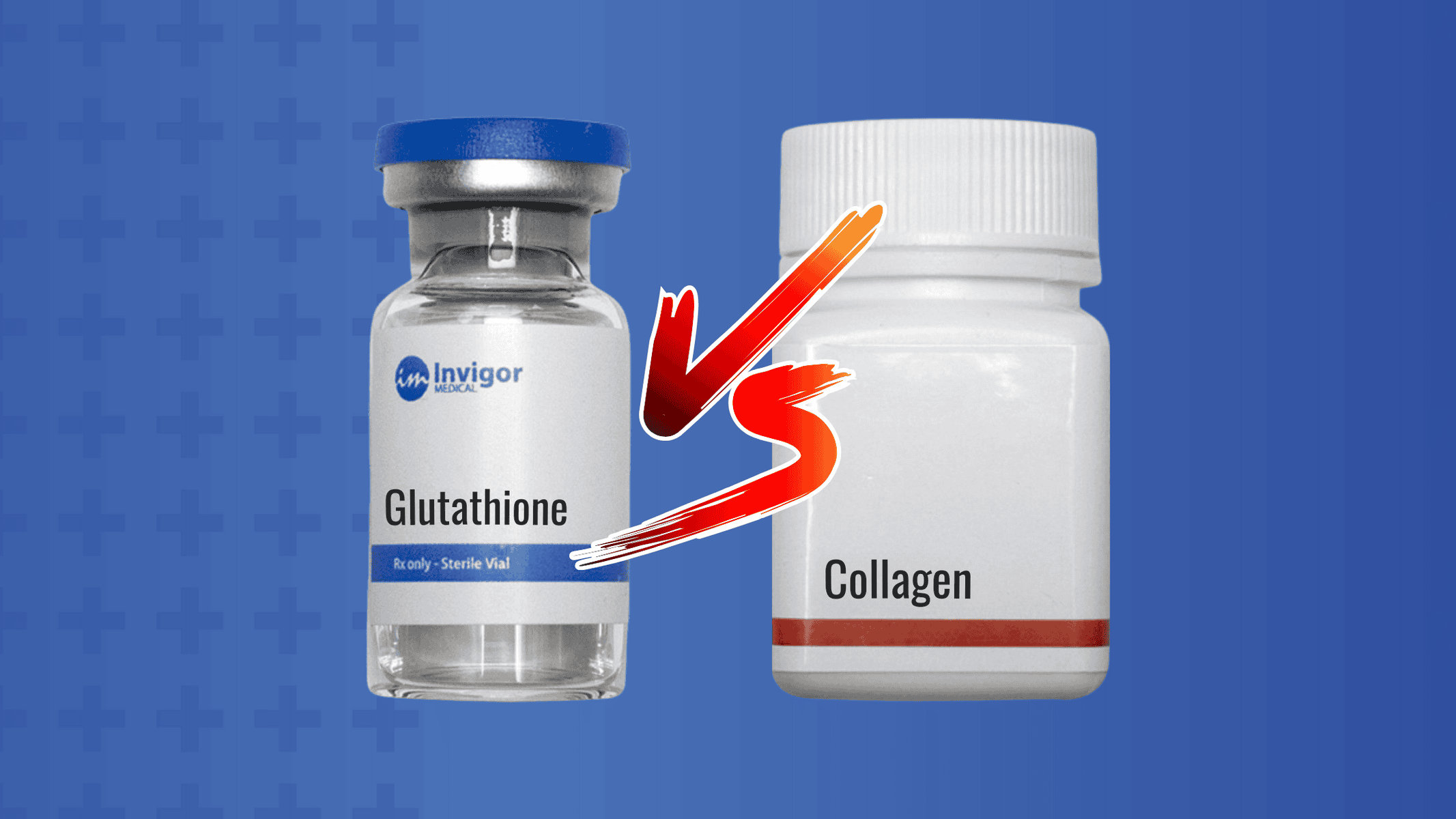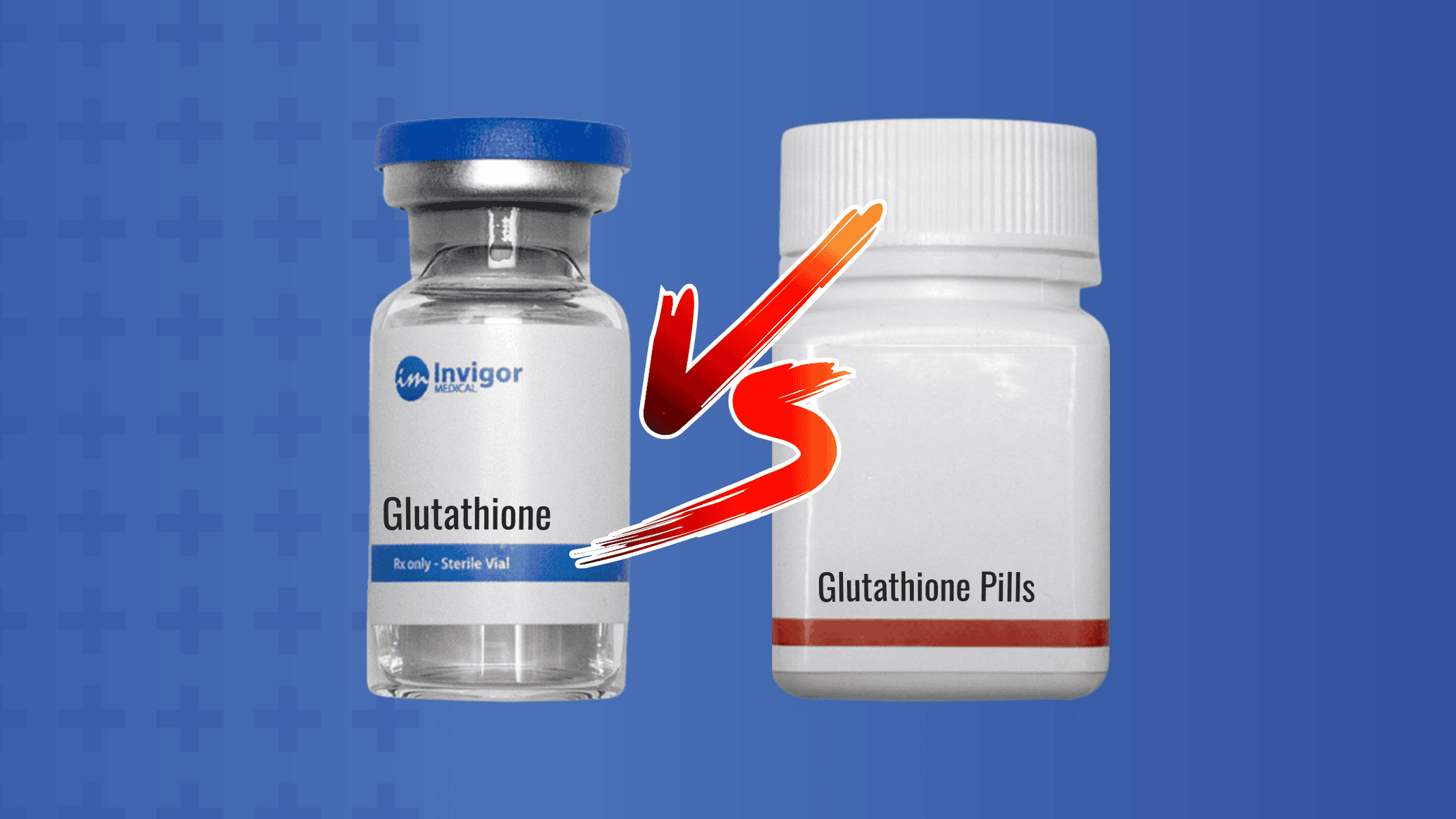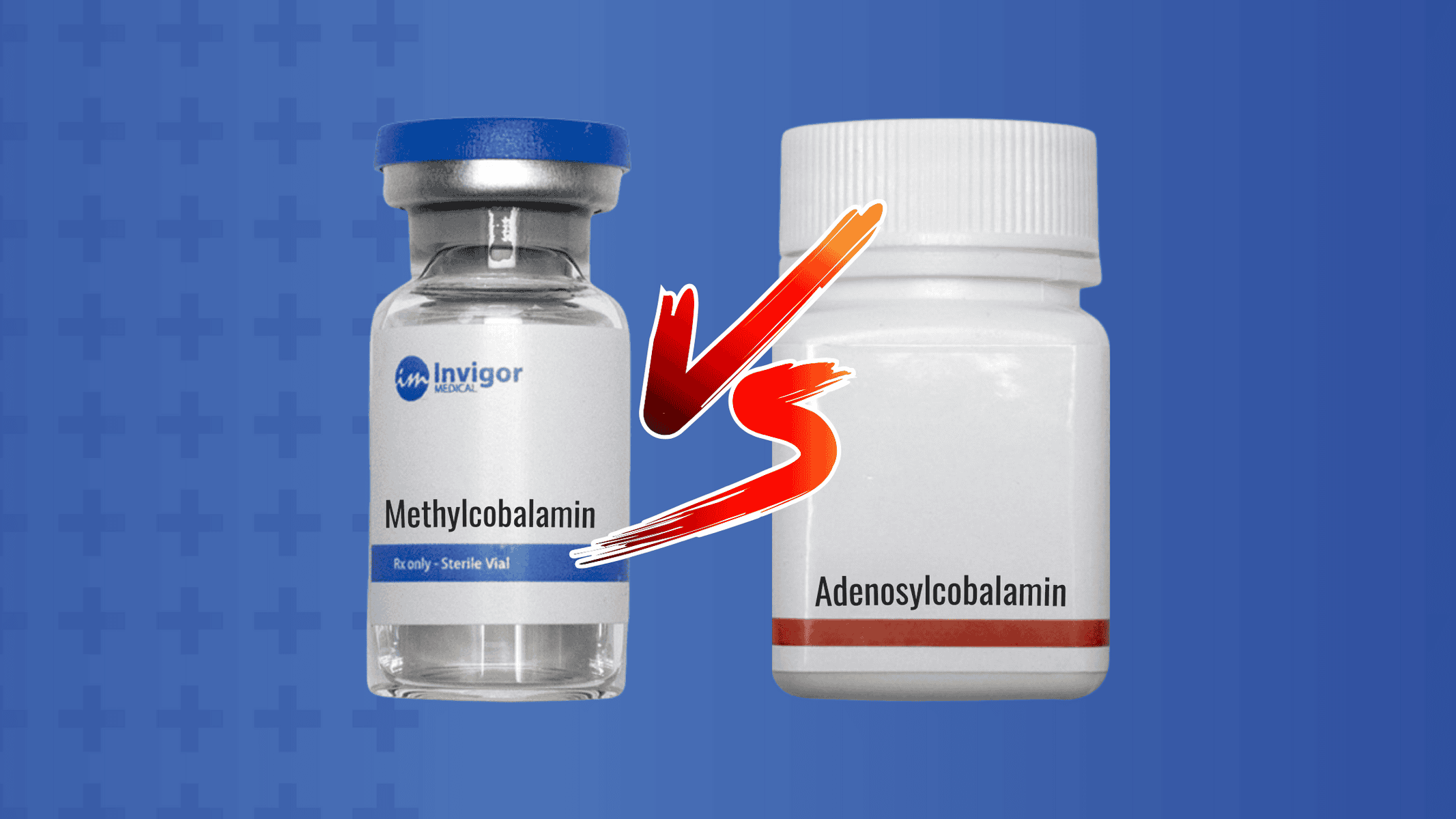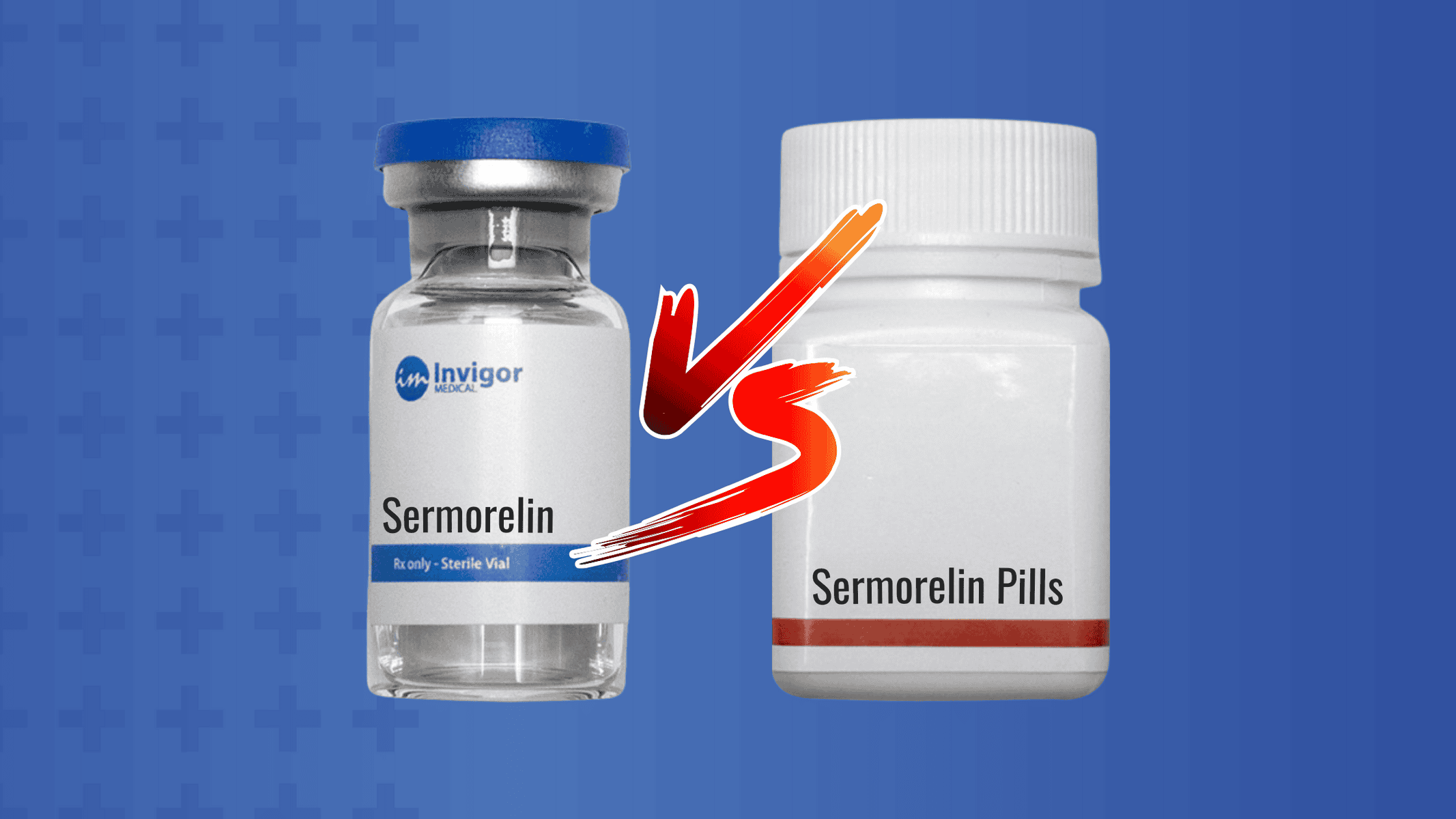Glutathione injections are used worldwide, but they have only been gaining popularity in the United States more recently, and for a good reason. This powerful antioxidant holds an unbelievable amount of benefits when used appropriately. Lack of glutathione contributes to oxidative stress, which plays a key role in lung disease, osteoarthritis, cataracts, glaucoma, chemotherapy, and cancer, as well as Alzheimer’s disease and Parkinson’s disease (Wu et al., 2004).
Glutathione can be used medically and cosmetically, but it is extremely important to establish a glutathione injection dosage that is right for you to see the desired effects, whether treating symptoms or improving your skin. You may have a lot of questions about glutathione, what it does in the body, and how it is administered, as well as how to establish the proper dosage. Once you understand more, you may find it hard to deny that glutathione is essential to supplement.
Table of Contents
Wait, What Is Glutathione? What Does It Do?
Glutathione is a powerful antioxidant produced naturally in our cells and can also be found naturally occurring in various foods. It is a tripeptide, meaning that it comprises three amino acids: glutamine, cysteine, and glycine. Glutamine is a building block of proteins and plays a critical role in supporting the body’s immune system. Glycine also plays a role in creating proteins and offers added benefits such as improved sleep quality and heart and liver protection.
When these two amino acids are combined with cysteine, which contains sulfur, it forms glutathione, which can uniquely bond to proteins and allow glutathione to maintain and repair the structure of proteins. Glutathione plays several other important roles in our bodies, mainly as a detoxifier and an antioxidant.
Glutathione’s major role is in fighting oxidative stress, a naturally occurring process in cells as a byproduct of metabolism. Oxidative stress occurs when there is an imbalance of free radicals and antioxidants. This can happen for various reasons, mainly aging and other stress on the body from illness or disease. Exposure to viruses, bacteria, radiation, environmental toxins, and pollution may deplete glutathione levels, resulting in a buildup of free radicals, which are unstable atoms that can be extremely harmful to the body (Lang et al., 1992).
If there are too many free radicals loose in the body, it can cause damage to your cells, proteins, and even your DNA, which may further lead to dangerous diseases such as diabetes, cancer, and rheumatoid arthritis. Glutathione works to maintain homeostasis and ease oxidative stress by protecting and repairing cells, proteins, and DNA (Wu et al., 2004).
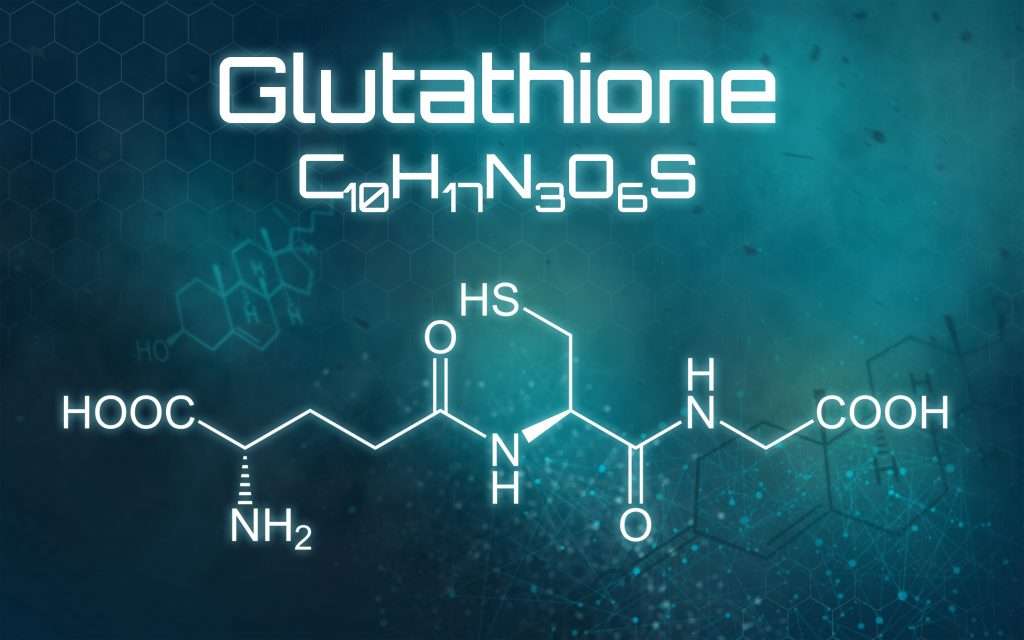
How To Determine If You Have A Glutathione Deficiency
The most important benefit of glutathione injections is they can help treat a glutathione deficiency, which can contribute to degenerative diseases or conditions. While severe cases of glutathione deficiencies are rare, mild-to-moderate cases of glutathione deficiencies often go unnoticed because the symptoms are common and minor. Supplementing your glutathione levels can completely change how you feel, and even how you look, on a day-to-day basis. Understanding your body’s levels of glutathione may help you determine an appropriate glutathione injection dosage to effectively treat your symptoms or help you rejuvenate and refresh your body.
One way to find out if you do not have adequate levels of glutathione present in your body is to undergo specialized testing at your doctor’s office. Although the tests are sometimes unreliable because glutathione is known to fluctuate widely, doctors can still use plasma and blood testing as a baseline. Typically, the normal range of reduced GSH is 3.8 to 5.5 umol/L. In red blood cells, or RBCs, the standard range of glutathione levels should be 1,000 to 1,900 umol/L, although 1,000-1,200 umol/L are considered to be low levels. If you are prescribed glutathione, you will want to monitor your levels to ensure that it is having the desired effect (Guilford, 2012).
Another way to know if you have a glutathione deficiency is through your symptoms. Even the healthiest of people may require glutathione supplementation from time to time. Early symptoms of a mild-to-moderate glutathione deficiency include fatigue, poor sleep, a weakened immune system leading to more frequent infections, and a foggy, unclear brain. The symptoms of a more severe deficiency include anemia, which presents as fatigue, pale skin color, shortness of breath, and lightheadedness. You may also have an enlarged spleen, called splenomegaly, if you are deficient. Other symptoms of more severe deficiency include seizures, trouble coordinating movement, and metabolic acidosis, which is a buildup of acid in the body and includes symptoms such as nausea and vomiting (NIH, n.d.).
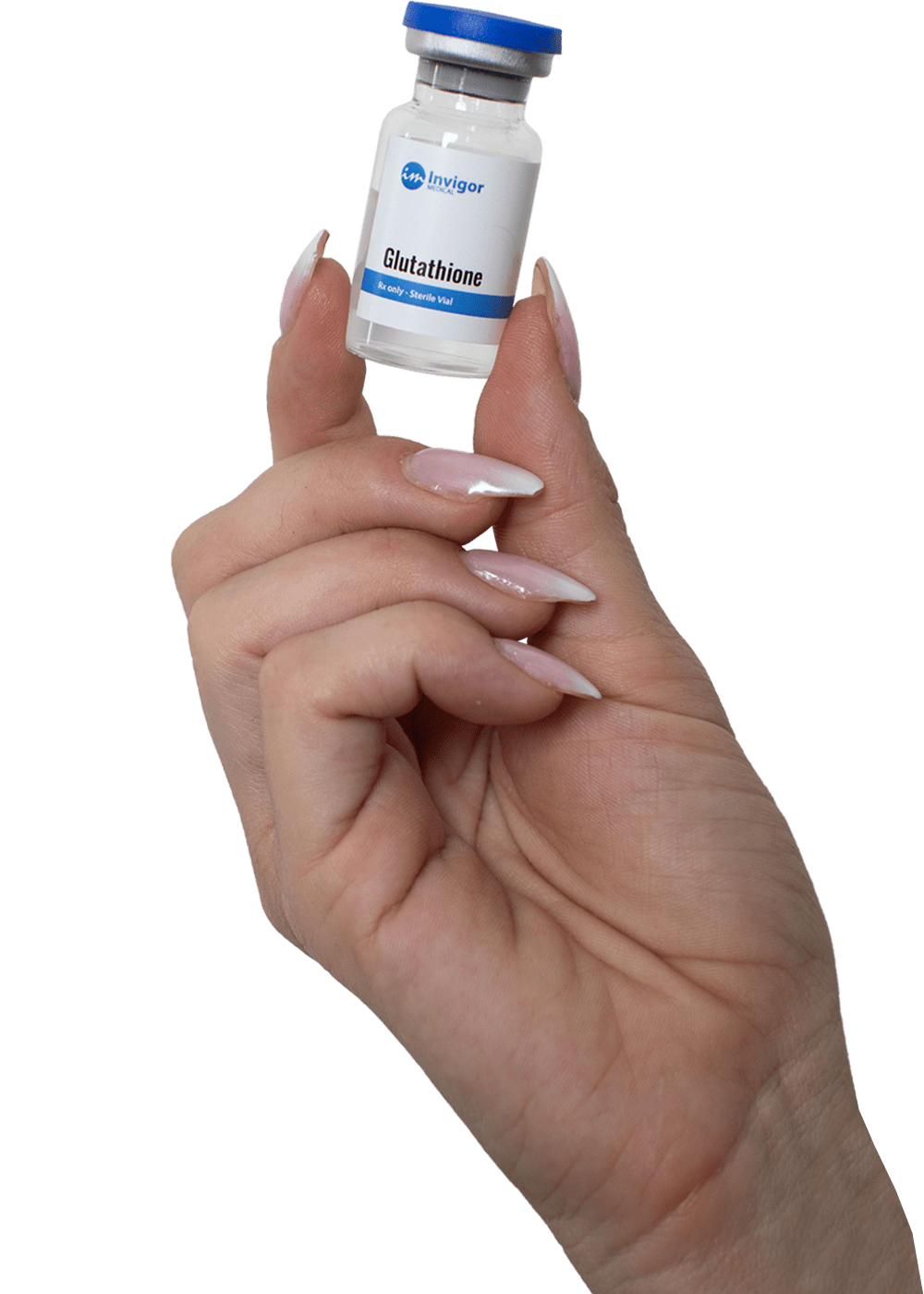
Benefits Of Glutathione Injections
The most important role that glutathione injections play is they can help treat a glutathione deficiency and fight and eliminate unstable free radicals in your body. While reducing oxidative stress may be the most important benefit of glutathione injections, glutathione is well known for its effects on the skin. Glutathione fights free radicals, which may cause immune system issues and premature aging on the skin, so glutathione injections work to promote healthy aging.
This means that patients taking consistent glutathione injections will probably notice that they are glowing and look younger and refreshed; their under-eye circles disappear, they feel more clear-minded and energetic, and their wrinkles look less intense. Patients’ skin may even get lighter and any hyperpigmentation, blotchiness, or discoloration in their skin is likely to disappear or fade with consistent use of glutathione injections (Pizzorno, 2014).
Glutathione injections also support general healthiness, because they work to detoxify the body, leaving patients feeling overall rejuvenated. It can also promote the development of lean muscle mass and impact your athletic performance, especially because it will help you feel more energetic, alert, and focused. Glutathione can also boost your immune system and help you sleep better at night (Myers, 2019).
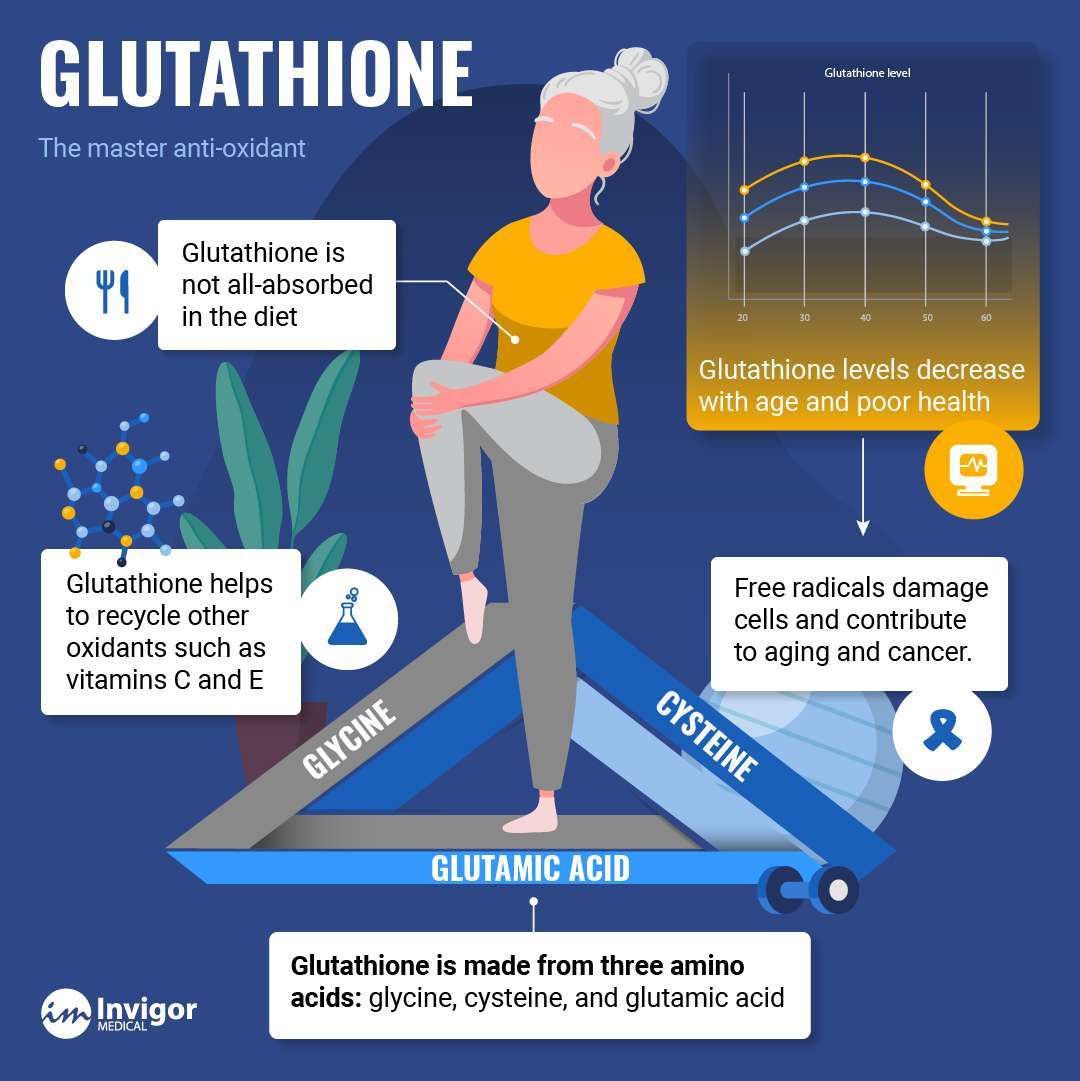
Glutathione Injection Dosage
The exact glutathione injection dosage that you should take will vary from person to person, depending on various factors, including your height, weight, metabolic rate, and why you’re taking the glutathione injection. It is essential to find the right dosage to experience the full beneficial effects of glutathione injections. Glutathione injections require a prescription. You should always consult with a healthcare professional to determine the right glutathione injection dosage and determine if you should take other vitamins on the side, such as Vitamin C, to boost or maintain the effects.
The absorption of the glutathione by your body may be affected by factors such as alcohol consumption, smoking, and exercise, which may result in slower visible effects or require higher dosages.

Where To Get A Glutathione Injection
Now that you understand the benefits of glutathione, you may be feeling eager to begin the injections as soon as possible. The first step is to make an appointment with a healthcare professional.
When you sign up on the Invigor Medical website, they will ask you to enter your payment information and complete your health history forms. One of the Invigor Medical health care professionals will review your forms and contact you to discuss your health history and needs.
Invigor Medical offers many benefits, including a highly qualified, credentialed staff who partner with a U.S. based, licensed pharmacy to ensure that you receive pharmaceutical-grade medications.
If you want a pharmaceutical-grade L-Glutathione supplement, with all of its benefits waiting to be discovered, then you should consider purchasing from Invigor Medical’s user-friendly website. What could be better than clear, glowing skin and rejuvenation delivered right to your front door?
To learn more about Invigor Medical and how it can supply your glutathione, visit the Invigor Medical website or buy glutathione supplement directly from Invigor Medical.
